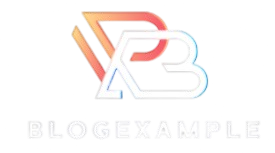Meta the tech titan behind Facebook, Instagram, and WhatsApp, now stands at the center of one of the most high-profile antitrust trials in recent memory. The U.S. Federal Trade Commission (FTC) has launched a fierce legal battle, accusing Meta of monopolistic behavior that allegedly stifles competition in the social media and digital communication space.
Understanding the Core of the Case
At the heart of the FTC’s lawsuit is Meta’s acquisition of Instagram in 2012 and WhatsApp in 2014, deals that once sailed through regulatory approvals but are now being reexamined in a different light. The FTC claims these strategic purchases were not just business moves but deliberate attempts to eliminate rising competition and secure Meta’s dominance across key sectors of social networking and messaging.
Meta’s Stance and Strategic Defense
Meta, for its part, argues the acquisitions benefited users and developers alike by improving product experiences and enabling innovation at a faster pace. The company is standing firm on the belief that it has earned its market position somewhat through constant innovation and responsiveness to user needs, not through anti-competitive conduct.
Industry Implications and Tech Ecosystem Impact
The outcome of this trial won’t just affect Meta. Other major players in the tech industry—like Google, Apple, Amazon, and Microsoft—are also watching closely. If the FTC succeeds, it could set a new precedent for how mergers and acquisitions in the tech world are reviewed and regulated going forward, possibly triggering fresh investigations and rewriting rules for future deals.
Read More : U.S. announces probe into chip, electronics imports, paving the way for new tariffs
Revisiting the Market Monopoly Debate
One key focus of the trial revolves around defining the market itself. The FTC argues that Meta operates in a narrow market of “personal social networking services,” a category that would make it easier to establish monopoly power. Meta disputes this framing, pushing back with claims that competition is fierce and evolving rapidly, citing platforms like TikTok, YouTube, Snapchat, and emerging AI-based tools as viable challengers
The Role of Public Perception and Government Pressure
This case comes during a period of heightened political and public scrutiny of Big Tech. Policymakers from both parties have voiced growing concerns about the influence and unchecked growth of technology conglomerates. Public sentiment has increasingly shifted toward holding these companies accountable for their data practices, user control, and overall societal impact.
Legal Challenges and Trial Dynamics
Antitrust trials of this magnitude involve extensive discovery, expert testimonies, and intense courtroom debates. The FTC must demonstrate not only that Meta holds a dominant market position but also that it has actively maintained that dominance through exclusionary practices. Meta’s legal team is expected to challenge every aspect of the FTC’s argument, focusing on technical details and broader economic theory.
The Uncertain Road Ahead for Meta and Regulation
This trial could last for months, with appeals likely regardless of the outcome. It represents a defining moment for how the U.S. handles antitrust enforcement in the digital age. A win for the FTC could empower regulators to take a more aggressive stance, while a Meta victory might reinforce the current model of self-regulated growth within tech conglomerates.
Frequently Asked Questions
What is the FTC accusing Meta of?
The FTC alleges that Meta engaged in monopolistic practices by acquiring competitors like Instagram and WhatsApp to eliminate threats.
Why is this trial important?
It could reshape how tech companies are regulated and set new standards for future mergers and acquisitions.
When did Meta acquire Instagram and WhatsApp?
Meta bought Instagram in 2012 and WhatsApp in 2014, both deals now under renewed scrutiny by the FTC.
Could Meta be forced to sell Instagram or WhatsApp?
Yes, if the court sides with the FTC, Meta may be ordered to divest these platforms to restore competition.
What is Meta’s defense in the trial?
Meta argues its growth is due to innovation, not monopolistic behavior, and that its acquisitions benefited users and developers.
How long could the trial last?
The case may take several months, and appeals could extend the legal process even further.
Who else is affected by this trial?
Other tech giants like Google and Amazon are watching closely, as the outcome could set broader legal precedents.
What impact could this have on users?
Changes in platform ownership or operations might affect user experiences, data privacy, and access to certain features.
Conclusion
Meta’s high-stakes legal battle with the FTC could become a turning point in digital antitrust regulation. With acquisitions, market definitions, and corporate accountability all under the microscope, the trial signals a powerful moment in tech history. Its outcome may determine how future innovation and competition unfold in the ever-evolving online ecosystem, marking a shift not just in policy but in how power operates in the digital world.

